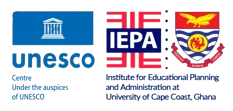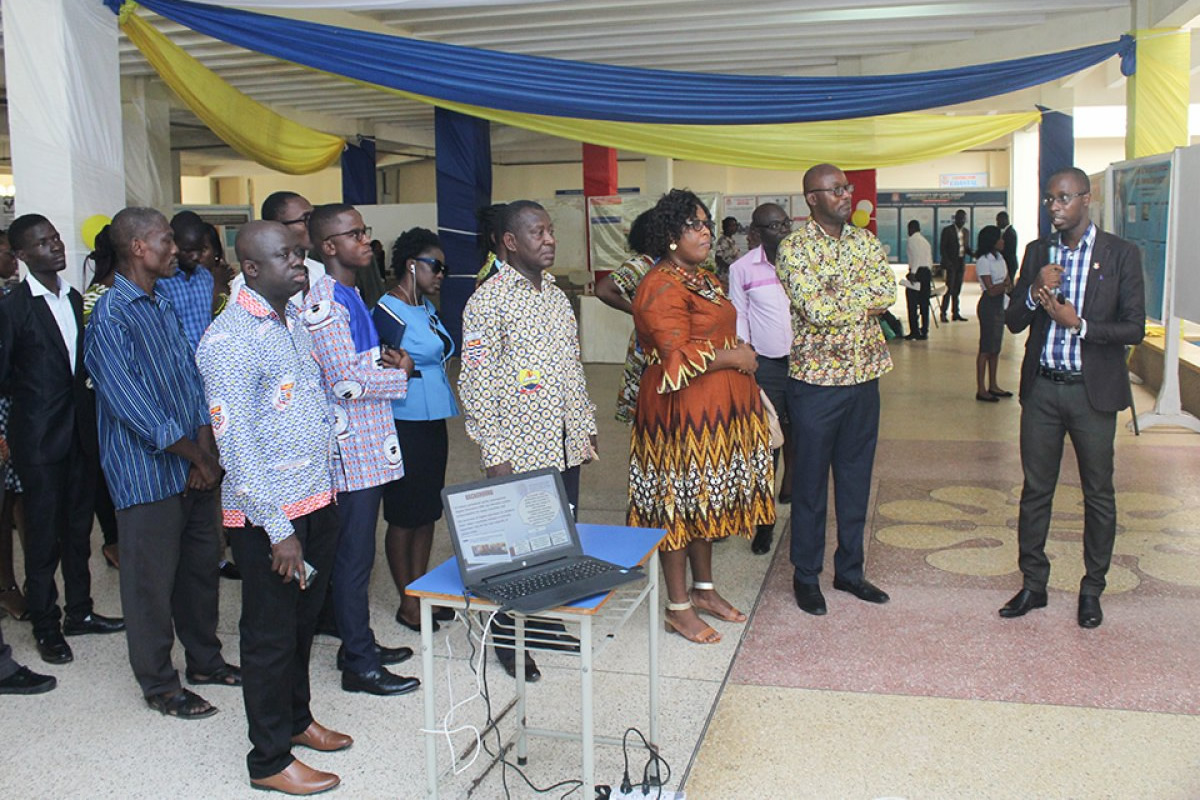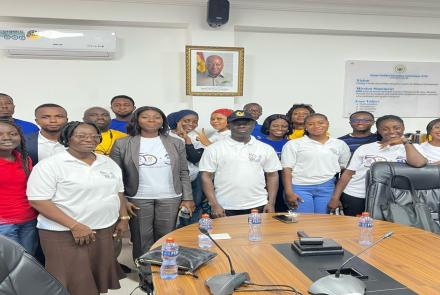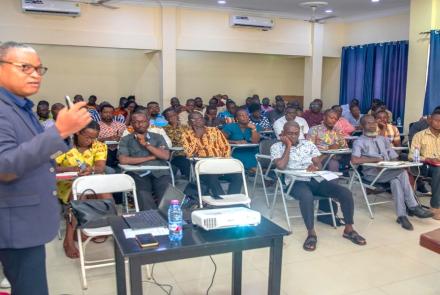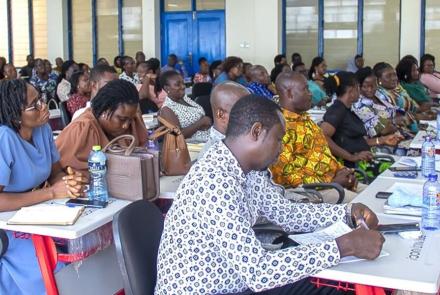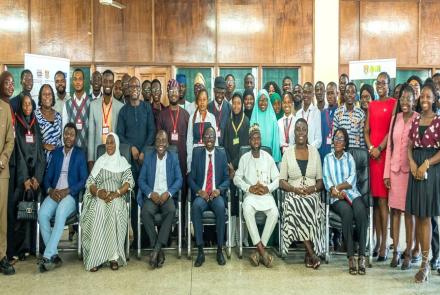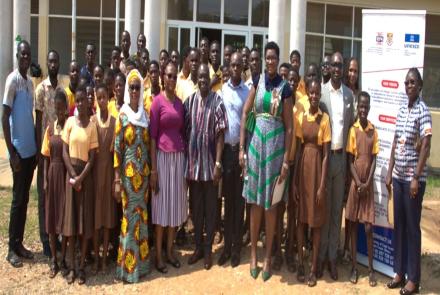IEPA Organises 5th Students Creativity and Innovations EXPO
The Institute for Educational Planning and Administration (I. E. P. A) has organised the Fifth Students Creativity and Innovations Expo at the C. A. Ackah Lecture Theatre Complex.
The Expo which began five years ago had the theme “Promoting Quality Graduate Education through innovations”, attracted student-participation from University for Health and Allied Sciences, Kwame Nkrumah University of Science and Technology and the University of Cape Coast.
EXPO Opens the University to External Scrutiny
Opening the Expo on behalf of the Vice-Chancellor, Prof. Joseph Ghartey Ampiah, the Dean of the School of Graduate Studies, Prof. Ernest Laryea Okorley said the Expo was a wonderful experience since any activity that exposed the University to external scrutiny was laudable. He noted that there was therefore the need to support the initiative, adding “I. E. P. A., know that the University management is strongly behind you”.
Speaking from the perspective of the School of Graduate Studies, Prof. Okorley indicated that universities should always open up to the external world to scrutinize their research work and offer suggestions and comments for them to learn from and do better.
EXPO Should be Nationwide Event
Prof. Okorley called for more participation not only from the I.E. P. A, but wanted the Expo to assume a University-wide dimension and possibly become a country-wide event where people would come and see the innovations that the University was churning out for them to support.
“If people do not know what you are doing, it will be difficult to ask them for their support,” he said.
This, he noted was very critical because it formed part of the University’s Strategic Plan to attract external input and collaboration that would make the University’s activities relevant to the outside world.
“A University that does not make an impact on the outside world, then I do not know what kind of University it is”, he said.
Graduate Education Calls for Innovation
The keynote speaker, Dr. Candice Moore, from the University of Maryland in the United States of America, mentioned three focal areas that called for our reimagination, “that is practice, pedagogy and productivity” and described the theme for the event as timely and a call to action. Dr. Moore indicated that quality graduate education could be achieved through transforming Practice, Pedagogy and Productivity. “Graduate education calls for innovation that is local and indigenous; through this, we can impact change”, she noted.
Continuing, she said as we promote local innovative research methods, we should engage more intently with local communities and incorporate local indigenous knowledge into our research. She said it was the duty of faculty and administrators to fashion the imagination of graduate students, stating: “Research, scholarship and teaching will be nothing without the community, our productivity must serve to aid and advance our communities”.
“You see we are the policy definers, we are the change makers, we are the theory designers, we are the community organisers, we are the innovators, let us be the humans, we are called to be”, Dr. Moore stressed.
Demand for Graduate Education was Growing Steadily
Dr. Marie A. B. Bakah, who chaired the programme said demand for graduate education was growing steadily and for this reason, higher education institutions were responding by developing wide range of new programmes in a variety of subject areas.
Dr. Bakah stated that there was an increasing concern among academics, funding agencies and the public at large concerning the quality and value of graduate education in the country and there was therefore the urgent need to encourage innovations to increase the world’s capacity for solving global problems.

